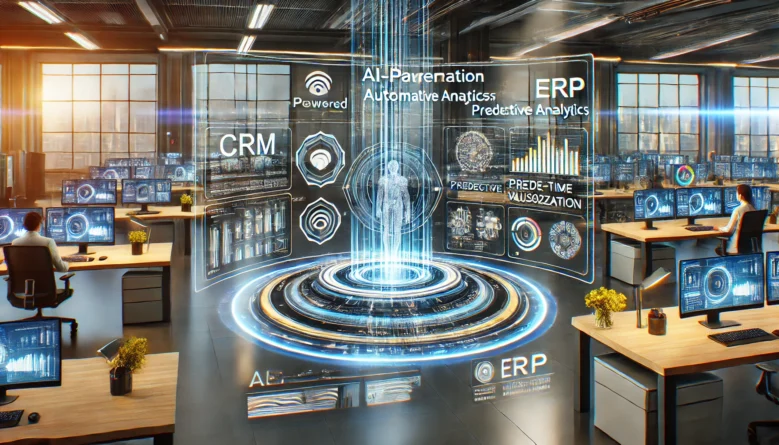
In 2025, the integration of Artificial Intelligence (AI) into Customer Relationship Management (CRM) and Enterprise Resource Planning (ERP) systems is revolutionizing business operations. Leading companies like Microsoft and Salesforce are at the forefront of this transformation, introducing AI-driven features that enhance efficiency and customer engagement.
Microsoft’s AI Innovations
Microsoft has significantly enhanced its Dynamics 365 platform by integrating AI capabilities. A notable development is the introduction of Copilot, an AI assistant designed to streamline tasks across CRM and ERP applications. Copilot leverages large language models and organizational data to automate processes such as sending emails and managing employee onboarding. Additionally, Microsoft has launched autonomous AI agents within Copilot, capable of performing tasks ranging from simple responses to full autonomy in areas like sales and customer service. These advancements aim to create an AI-powered environment that boosts productivity and operational efficiency.
Salesforce’s AI Advancements
Salesforce has also made significant strides by introducing Agentforce, an AI platform designed to automate routine sales and service tasks. Since its launch in late 2024, Agentforce has secured numerous deals, reflecting strong market demand. Analysts project that AI capabilities like Agentforce could contribute an additional $4 billion to Salesforce’s annual revenue starting in 2025. This platform enables businesses to enhance customer interactions and streamline operations through AI-driven automation.
Key Trends in AI-Driven CRM and ERP Systems
The integration of AI into CRM and ERP systems is characterized by several key trends:
As AI continues to evolve, its integration into CRM and ERP systems is expected to further transform business processes, driving growth and innovation in the coming years.